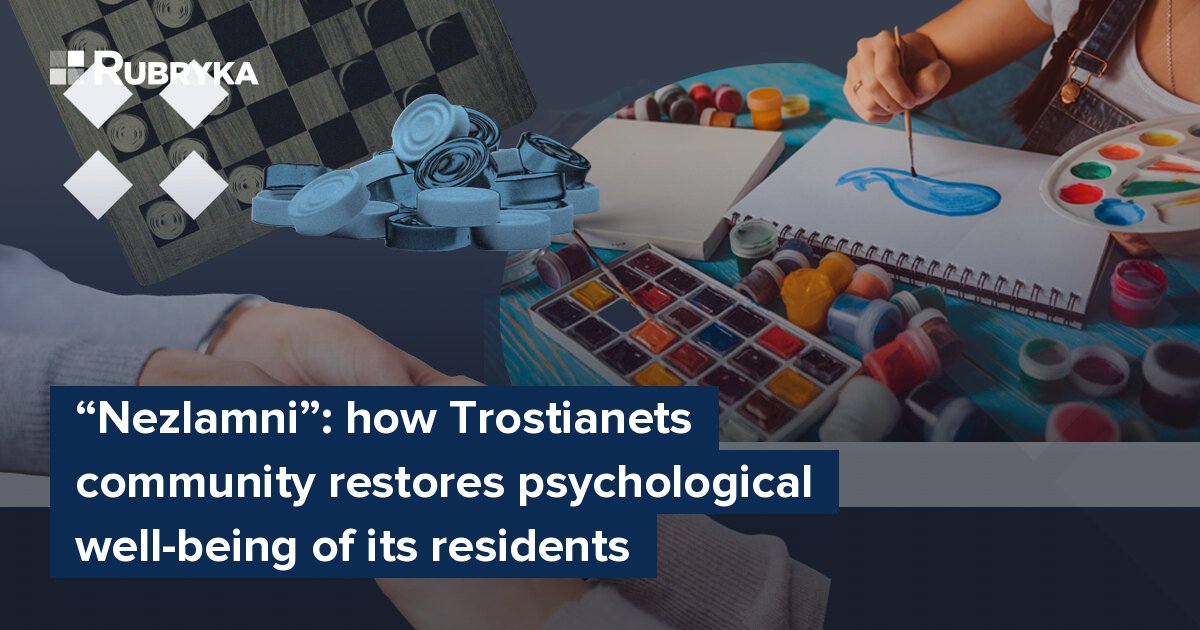
What is the problem?
The Ministry of Health of Ukraine reported that well over 90% of Ukrainians surveyed are showing signs of an anxiety disorder, and over half are in danger of having mental health problems.
An audit of resources related to providing mental health services within the All-Ukrainian mental health program "How are you?" has revealed that Ukrainians spend around UAH 300 million monthly on over-the-counter sedatives, and the consumption rate of antidepressants has significantly increased. The situation is particularly dire in the territories currently de-occupied or under constant fire from the Russian military forces.
What is the solution?
Understanding the scale of the problem, communities are coming up with solutions to help Ukrainians regain their emotional equilibrium, heal their mental health, and learn to live in new conditions.
Thus, in the Sumy region, thanks to the Stability program implemented by the Eastern Europe Foundation, the Center for Social Initiatives of the Trostianets Community public union implemented the "Nezlamni" [Unbreakable – ed.] hub project. Now, all kinds of things are going on here almost every day: psychological support stuff, handing out free legal aid, master classes, art therapy sessions, and such. All of this was to lend a hand to the locals and people who had to move away due to wartime challenges.
How does it work?
"We got caught in the city by the war; orcs had been here since dawn."
The Center of Social Initiatives of the Trostianets Community public union was set up in March 2021. Back then, it brought together the local Organization of Veterans of Ukraine, "Soiuz Chornobyl Ukrainy," Anti-terroristic Operations' Veterans' Union "Voin," formation "SICH" and "Family Circle of Trostianechchyna."
Since its foundation, the organization has begun using grant program opportunities actively. So, two years ago, various grant funds were used to repair the office premises of each public organization that is part of the union. Until February 24, they worked as usual, held events and consultations, and provided legal and humanitarian assistance to the residents of Trostianets.
"We got caught in the city by the war; orcs [Ukrainians refer to Russians as orcs because they're associating them with the chaos, lack of intelligence, and violation of all human rules and laws – ed.] had been here since the crack of dawn. We were lucky to take down all the signs on the union's premises. If they had seen the "Anti-Terroristic Operation's Soldiers Cabinet" sign, they would have likely blown up the building," recalls Tetiana Zhohlo, the union head.
For almost a month, while the occupation was happening, the Center for Social Initiatives of the Trostianets Community was out of commission. Some offices were in terrible condition; the occupiers had stolen all the equipment. The Russians damaged the heating system, broke windows and doors, and the bathrooms froze. The rain and snow that poured into the premises added to the damage. After the de-occupation in March 2022, the city and the union began moving away from the terrible events.
The most pressing issue was providing the population with food, clothing, and warm things, which was what the union did. Members of the association volunteered, delivered humanitarian aid from different cities of Ukraine, and distributed it to people who needed it. By the end of May, there was a great need for providing psychological help to the people in the community.
"Before then, we had to hold our first psychological support meetings outside since we didn't have a usable assembly hall and there were so many of us. Already in September, we prepared a grant application to the Eastern Europe Fund to receive funds for repair work in the assembly hall, bathroom, and corridors and to purchase some office equipment so we could really get the union going," says Tetiana Zhohlo.
Alongside buying office supplies and repairs, the community also paid attention to the needs of its people, including psychological, legal, and medical assistance, holding events for children, etc. Eventually, the project was successful in December 2022 when the Trostianets Community's Center for Social Initiatives was awarded a grant of UAH 825,000.
The work on arranging the premises for the future "Nezlamni" hub was able to start already on December 15, 2022. According to Tetyana Zhoglo, the biggest problem was finding a contractor to repair quickly.
Most of the self-employed construction workers in Trostianka who'd been working there before it was deoccupied joined the ranks of Ukraine's armed forces. Those from other cities didn't want to chance coming over to Trostianka; it was getting shelled, and there was a risk of another Russian invasion. A subcontractor was found in the nearby town of Okhtyrka. The city council also helped with the repair — it allocated funds to replace the heating damaged by the Russian military. By the way, the mayor of Trostianets, Yuriy Bova, always supports all union initiatives.
"It's been almost a month since the Okhtyrka guys renovated us, and we've already begun offering psychological assistance, helping with adaptation, tracking down the missing, lending support to the families of servicemen, and providing counseling in our newly renovated space," says Tetiana.
The entire project was completed in four and a half months – it felt like one day had passed in the blink of an eye.
"Our project team is pretty small – only a manager, a coordinator, and an accountant – but we've been really active and determined. I think we accomplished our goal," says Tetiana Zhohlo.
"Nezlamni" hub. The main task is psychological help
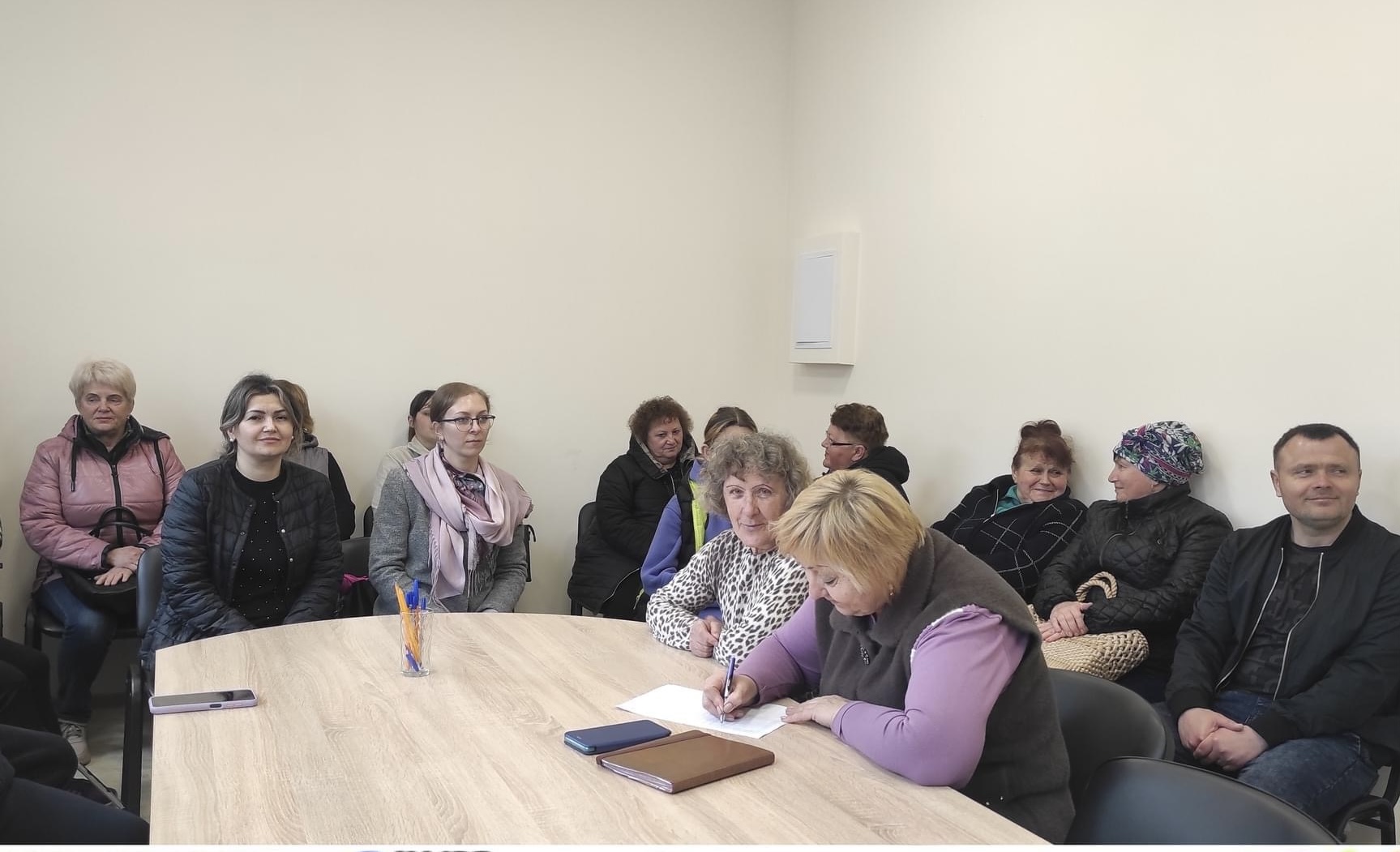 One of the training in the Nezlamni hub
One of the training in the Nezlamni hub
Today, local and relocated public organizations, public activists, and ordinary residents of Trostianets, including new townspeople who found refuge here after the start of the great war, gather in the hub.
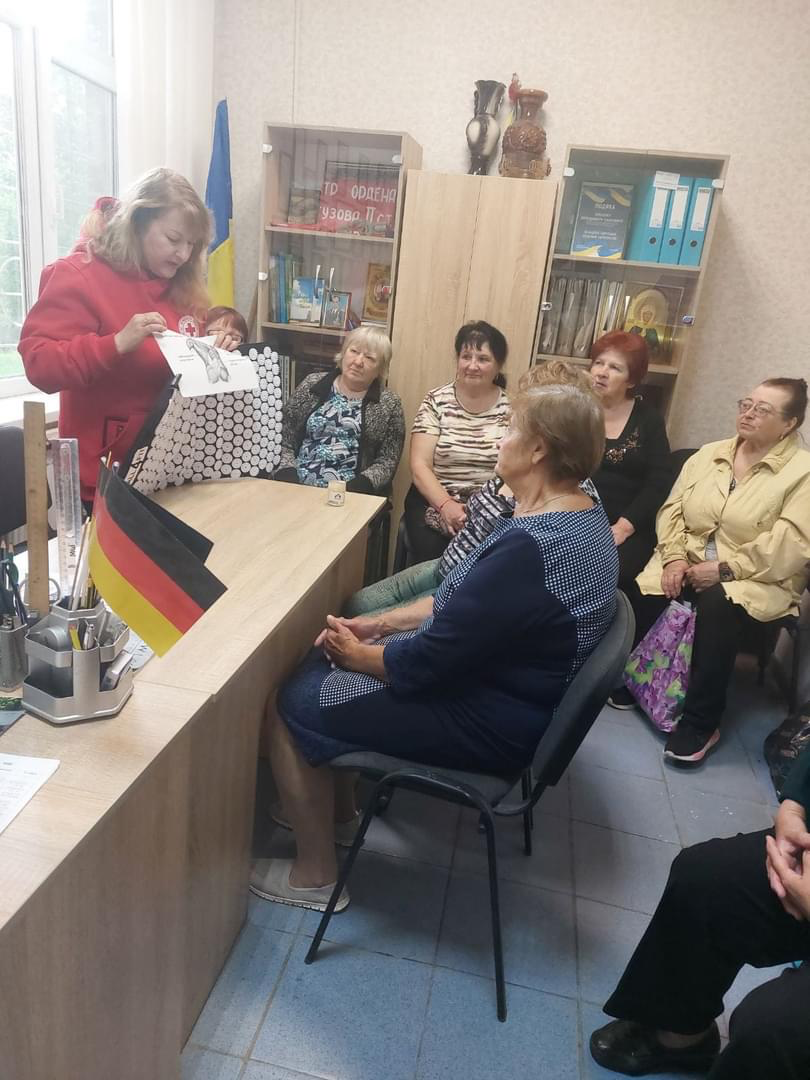 Receiving Training on panic attacks and coping strategies at the Nezlamni hub
Receiving Training on panic attacks and coping strategies at the Nezlamni hub
This hub holds workshops, training, and classes for internally displaced persons (IDPs) and community residents. The purpose of this place is to help people rebuild their mental strength, which has been severely strained by war. All activities here are facilitated by volunteers and completely free of charge.
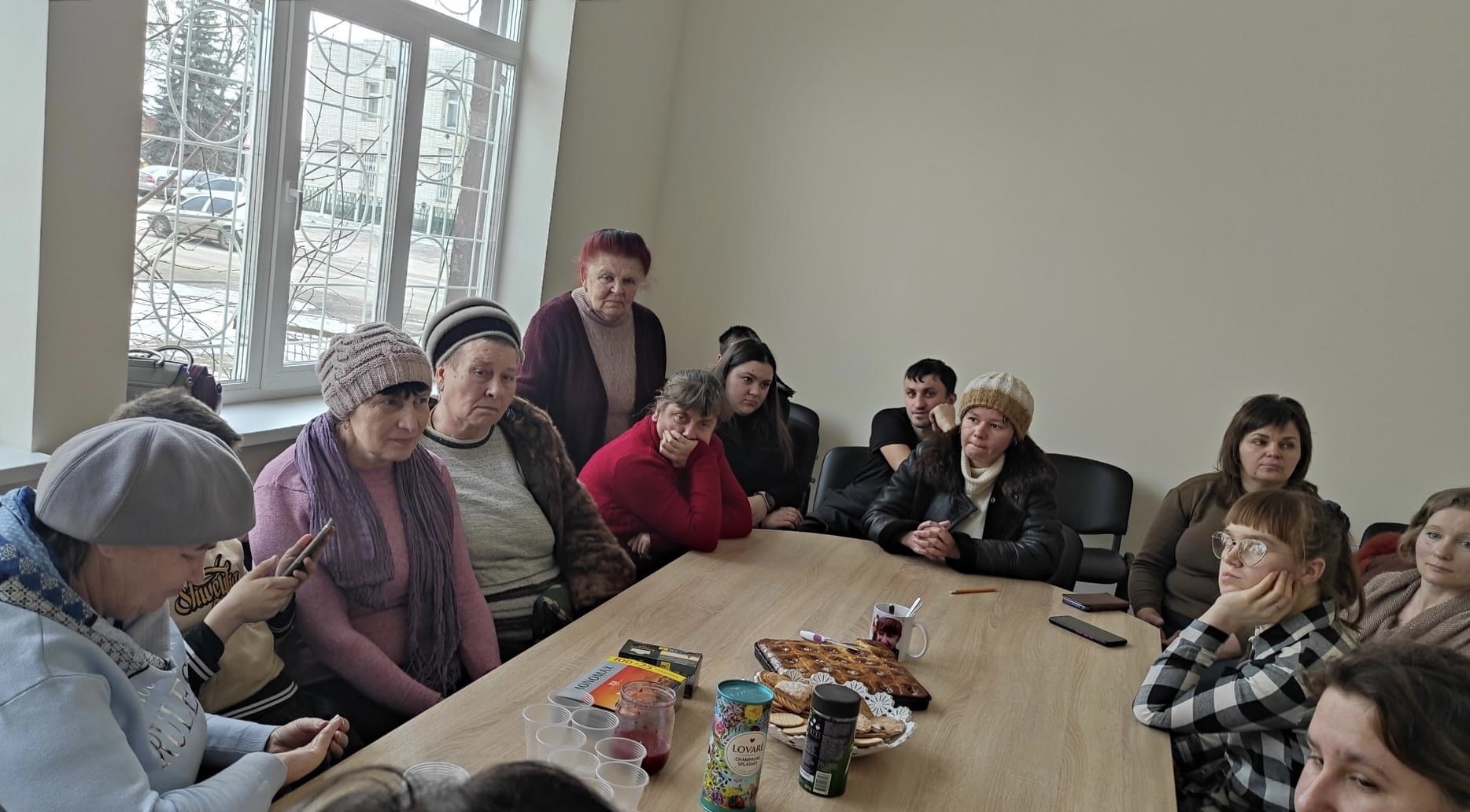 The people of Trostianets are breaking out of their isolation bubble
The people of Trostianets are breaking out of their isolation bubble
"Loneliness" is also a psychological support program. People with disabilities, displaced persons, veterans, those with several kids, and those from Chornobyl attended it. Experts say this topic is stigmatized, and people tend to hide and deny their loneliness because it does not seem socially acceptable. This plunges people further inward, making them feel they do not deserve the love and connection they insistently crave.
At the training, psychologists talked with community residents who feel lonely, learned from them about the perceived causes of this condition, and also informed attendees about the differences between depression, loneliness, and social anxiety. This way, they assisted the people who attended in overcoming their dilemmas. In addition, the treats brought in by the meeting's participants added a more relaxed atmosphere.
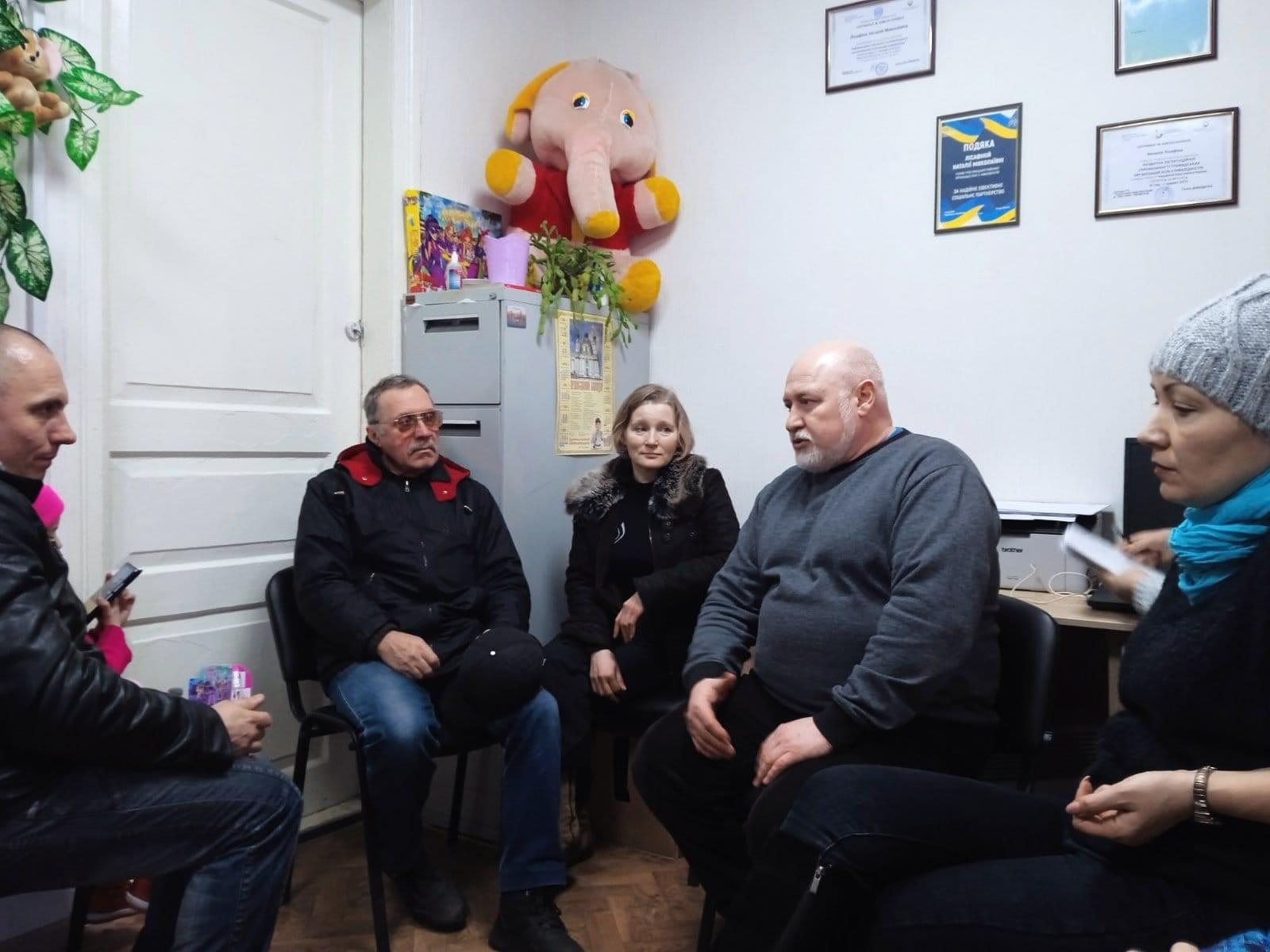 Military Chaplain Ihor Karpenko leads the "Sincerity and Candor" training
Military Chaplain Ihor Karpenko leads the "Sincerity and Candor" training
In turn, Chaplain Ihor Karpenko's psychological support program "Sincerity and Openness" helped the community recover after the occupation, as fears, panic attacks, and night terrors still haunt those living there. It's no surprise then that these psychological events draw the largest crowds. All the volunteers and visitors at the new hub are confident that Ukrainians will be victorious over both their fears and the enemy.
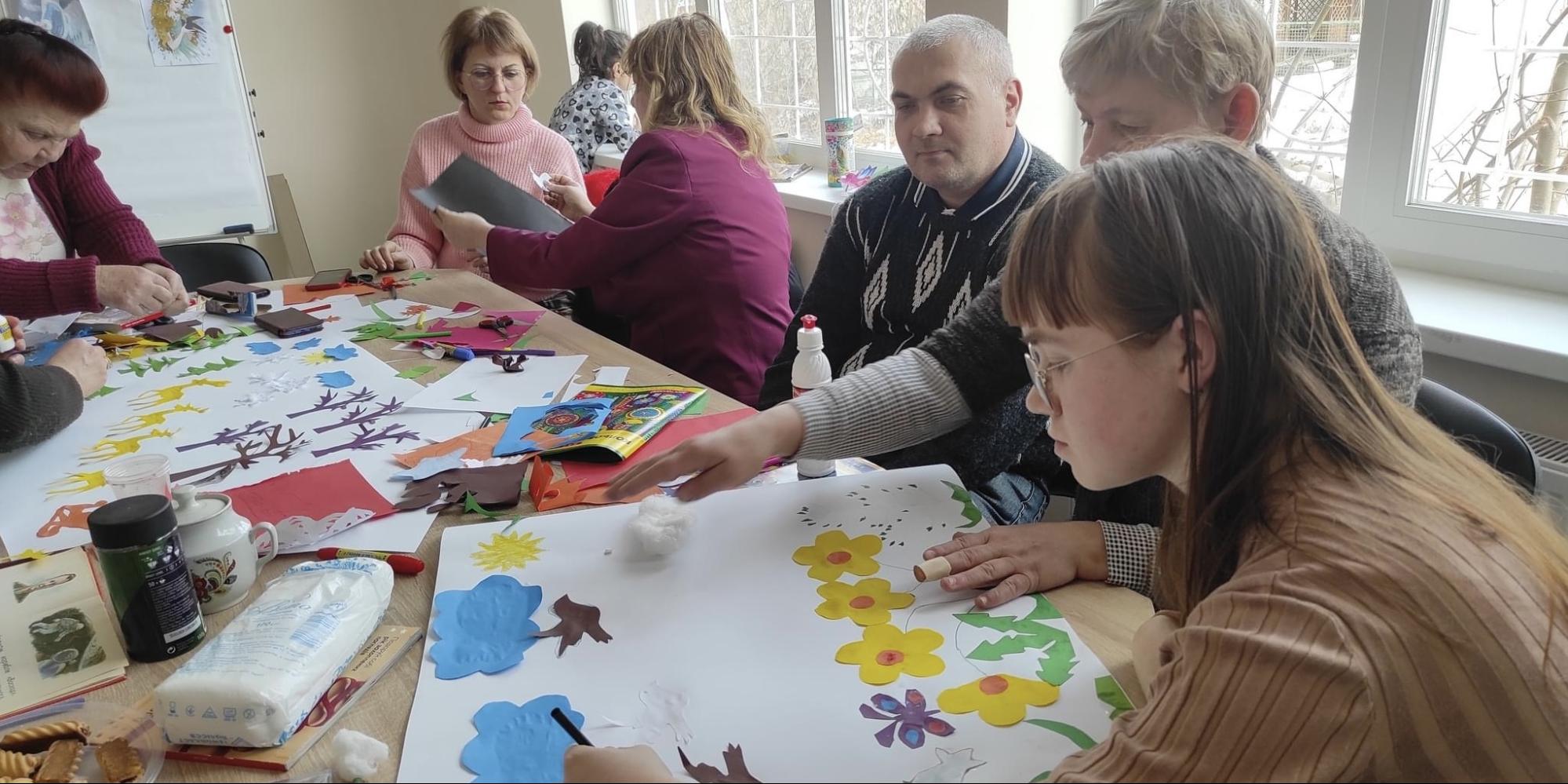 Art therapy classes for children and teenagers in the Nezlamni hub
Art therapy classes for children and teenagers in the Nezlamni hub
Lots of people are getting involved at Nezlamni hub with children. At the "Conflict – the Art of Interaction" art therapy event, kids ages 8 to 18 from internally displaced families, those with disabilities, and large families could manage their feelings and emotions. The hub's volunteer psychologists feel confident that these activities will be useful for their adaptation and help them deal with the changes they're facing in the future. The children could play games, draw, and design using appliqués at the art therapy workshop. Doing art allowed them to relax and take a break from the hardships of war.
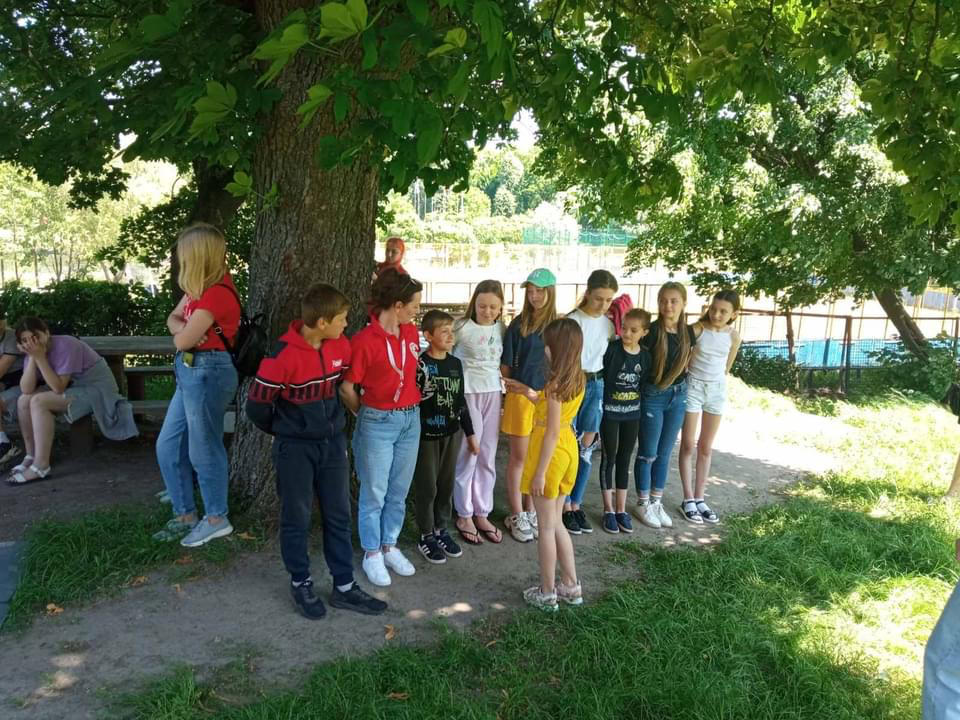
Event for children in the Nezlamni hub
On Children's Day, the hub put on an event organized and run by members of the Red Cross of Ukraine. Children created edible "flowers" and played games in the fresh air, and older children mastered the basics of providing first aid. In the end, all participants also received gifts from the Red Cross.
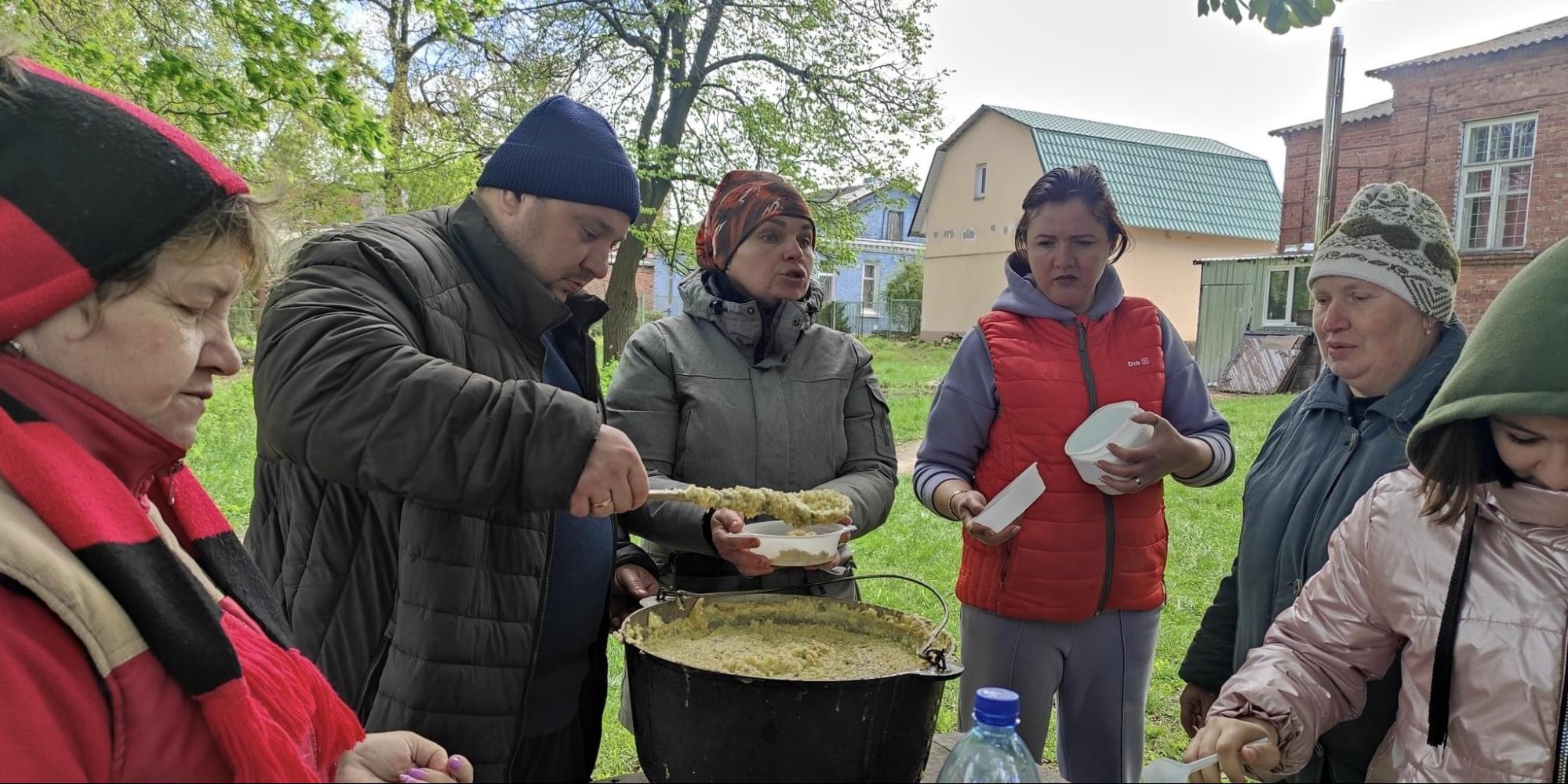
Clean-up in the "Nezlamni" hub
Not only workshops and training
Psychological support doesn't only come in the form of lectures; it can also include various activities to bring people in the community together. At the events held by the hub in Trostianets, community residents work together to maintain and improve their surroundings. They break up their work with some physical activity with the kids, and after a day's work, they get to enjoy a tasty field porridge cooked by everyone. In the breaks between work, they have fun with the kids outside, and after a successful day of work, they enjoy a hearty meal of freshly cooked field porridge.
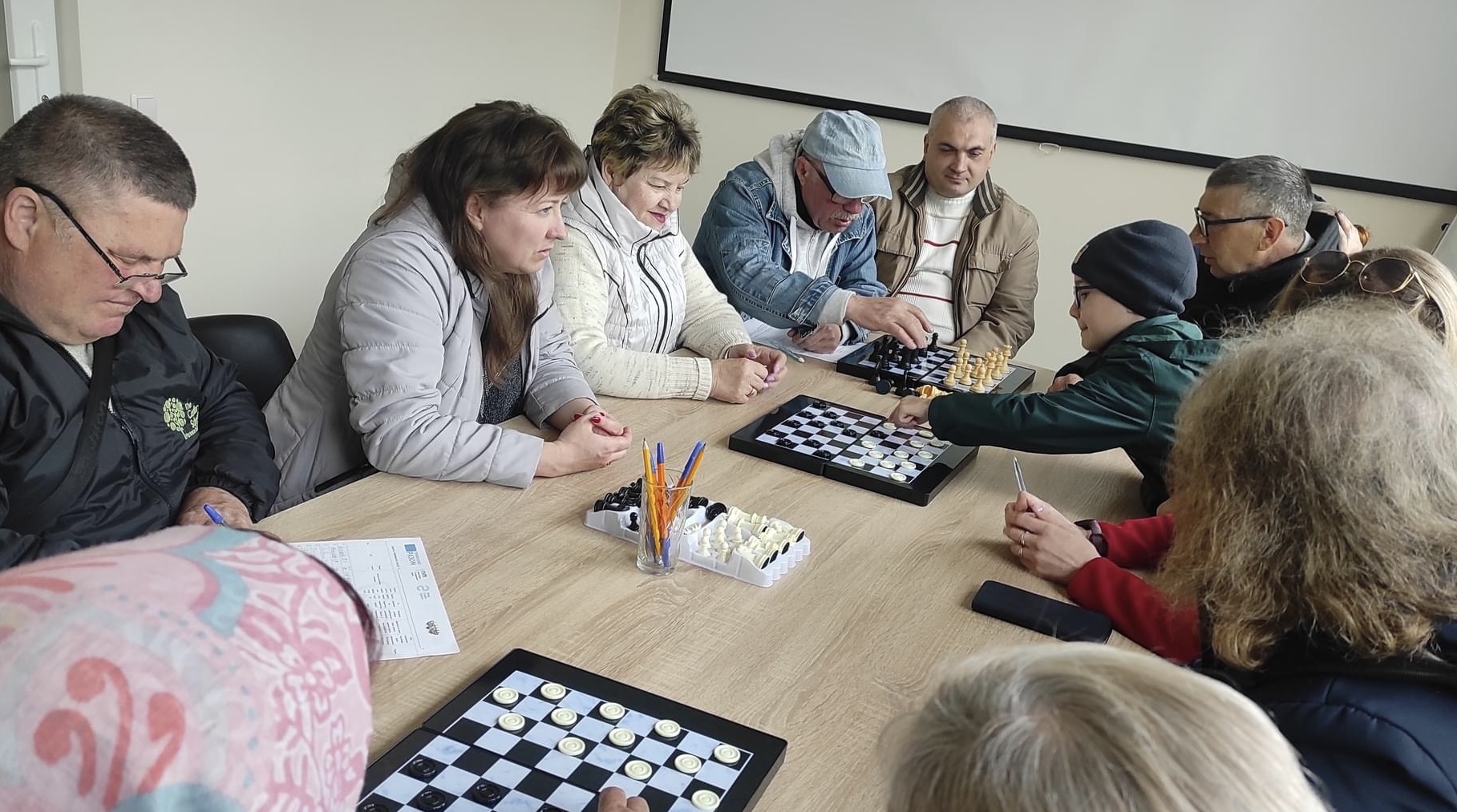 Chess and checkers are not only a hobby but also psychological support
Chess and checkers are not only a hobby but also psychological support
The hub also knows that not only physical and mental activity but any game or intellectual sport can have a psychological effect. This knowledge is actively used here – yes, checkers and chess tournaments are organized in the hub. Organizers say: they develop perseverance, determination, and balance and teach them to make decisions and make specific calculations. Because even in life, you have to make decisions based on a few steps or even a longer perspective. In addition, new hobbies are an excellent support for psychological well-being.
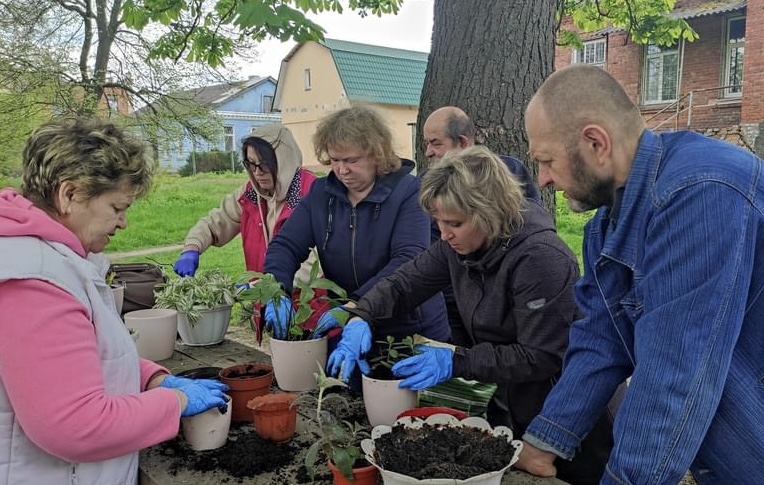
Master class "All about indoor flowers. Caring for and transplanting indoor flowers."
The Nezlamni hub offers master classes for grown-ups and kids, teaching them how to do makeup, paint gingerbread and Easter eggs, and care for plants and animals.
Does it really work?
At the beginning of the work, volunteer psychologists who came to the hub asked to provide them with napkins – they laid them out on the tables and conducted classes. Almost no dry tissues were left at the end of the meeting – people cried a lot, talking about their problems and fears. It's been two and a half months since the class started, and the psychologist noticed, "No used napkins around – looks like your mental health is improving, and you can open up more and talk about what happened with a lot more ease."
"And this is probably our biggest achievement," says the head of the union, Tetiana Zhohlo. — Children like to come to master classes, to social and developmental classes. At first, they were sad, but by the end of our project, everyone was smiling, feeling free, talking, and behaving freely. For the sake of these smiles – adults and children – we work. This gives us a huge incentive not to stop but to work further."
Even more useful solutions!
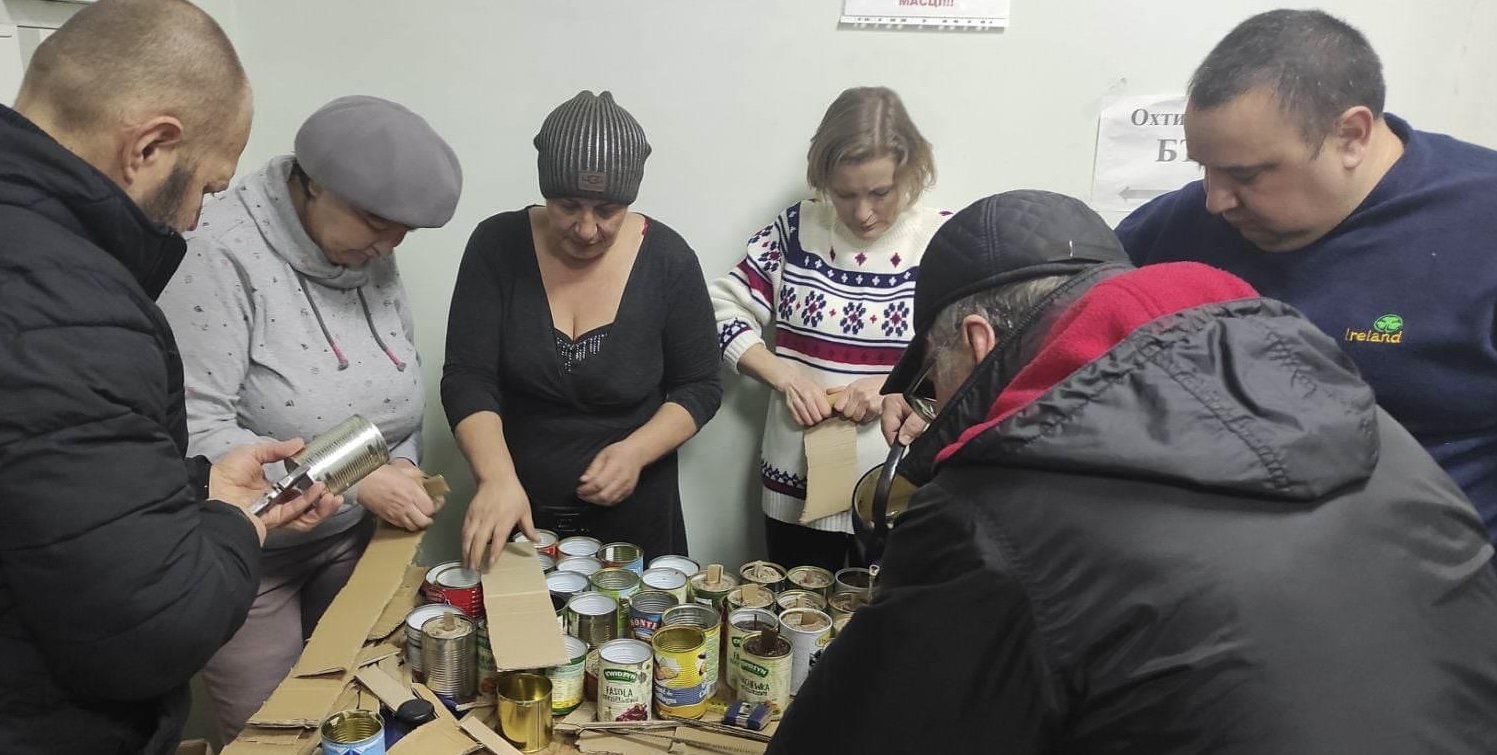 "We can! We want! We will be useful!" — in the Center of Social Initiatives of the Trostianets Community public union, they make trench candles, goodies, and salads for the defenders of Ukraine
"We can! We want! We will be useful!" — in the Center of Social Initiatives of the Trostianets Community public union, they make trench candles, goodies, and salads for the defenders of Ukraine
Alongside the events taking place in the hub, the Center for Social Initiatives of the Trostianets Community public union does all it can to help our service members in Ukraine's armed forces. So, during the whole winter in the hub, they've been making trench candles, pickling cucumbers and tomatoes, making dry soups and mixtures and pickling cabbage, and sending them off to the front.
The Center of Social Initiatives of the Trostianets community pays attention to all of the needs and issues of the regular inhabitants of the Trostianets area. At the hub, people can receive advice from both psychologists and lawyers. Special medical mattresses for bedridden patients receiving home care, armrests, and wheel walkers were recently handed over. Friends from Switzerland and the Swiss charitable organization "1019.ch — Hilfe für die Kriegsopfer in der Ukraine" are helping to provide humanitarian aid to the community's residents.
"The Russian military's criminal acts couldn't bring us down," states Tetiana Zhohlo. "We are right near the border, but still, we keep going. Our people won't break, won't give up. We'll stay strong no matter what."
Newsletter
Digest of the most interesting news: just about the main thing



